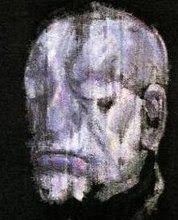 Levi responds with an extremely well-thought out post on object-oriented philosophy and nihilism here. Whilst I am not fully signed up to the definition of objects-as-difference, it seems apparent that it is indeed the case that norms (and even fictions) exist as objects/actors etc. Levi continues by stating that norms or values must always be produced, rather than emerging from some transcendent operation (no God delivering stone tablets on mountains for example). The question then resolves to the production of these particular objects, and that as produced (by biological, linguistic, social and historical processes) the kinds of relations they enter into and the processes of change they engender (including the forms of subjectivity they might be capable of conferring). That fictions are adopted as objects (providing, for Levi at least, if they make a difference, have an effect, which appears to be a crucial distinction between his own position and that of Reid Kotlas of Planemonology’s or Graham Harman’s) can be squared with the CCRU concept of the hyperstitional narrative, and indeed Badiou’s under-theorised idea of “the powerful fiction of a completed truth” (that rests at the core of the tricky notion of forcing within the transformative truth procedure).
Levi responds with an extremely well-thought out post on object-oriented philosophy and nihilism here. Whilst I am not fully signed up to the definition of objects-as-difference, it seems apparent that it is indeed the case that norms (and even fictions) exist as objects/actors etc. Levi continues by stating that norms or values must always be produced, rather than emerging from some transcendent operation (no God delivering stone tablets on mountains for example). The question then resolves to the production of these particular objects, and that as produced (by biological, linguistic, social and historical processes) the kinds of relations they enter into and the processes of change they engender (including the forms of subjectivity they might be capable of conferring). That fictions are adopted as objects (providing, for Levi at least, if they make a difference, have an effect, which appears to be a crucial distinction between his own position and that of Reid Kotlas of Planemonology’s or Graham Harman’s) can be squared with the CCRU concept of the hyperstitional narrative, and indeed Badiou’s under-theorised idea of “the powerful fiction of a completed truth” (that rests at the core of the tricky notion of forcing within the transformative truth procedure). Not all belief-objects or norm-objects are the same in terms of their machinic effects or diagrammatical workings, but none is more fundamental than any other (no matter their relative truth values). In this category we can certainly place ideological-objects, (which as Zizek frequently jokes, work even if you don’t believe in them). However, I am uncertain that Levi has banished the threat of nihilism yet- for whilst the teeming network or assemblage universe is filled with all kinds of components or actors, amongst them norms and values, just as there are planets, nematode worms, jokes and computer operating systems, our only recourse in terms of a selection principle seems to be the contingent set of normative assemblages acting upon us, enunciating us. Descriptively this is certainly highly satisfactory, and a useful way to think sociology perhaps. But equally it dissolves everything to the level of a cold-vitalism, or an amoral machinism (or perhaps even an a-political politics) wherein even life itself or machinic efficiency cannot be preferred over inert death or stasis or sclerosis (because the very norm of life or efficiency has been reduced to the ontological status of merely another actor within the network). I would be perfectly happy to agree to this outcome, a purely descriptive naturalism bereft of prejudice. What is capable of domination predominates over that which is incapable, and it is neither good nor bad (or possibly it is either/both, dependant on the point of view invested in the judging subject as side-effect of pre-personalising norm-objects). Though effectiveness itself is not ‘good’ it will lead to predominance within a system, (though even the claim that to be is better than to not be is unsupportable) and one implication of this is that the very status of ‘fiction’ and ‘truth’ become dislodged from their usual significations- is there not also the considerable danger of a rampaging relativism here?


